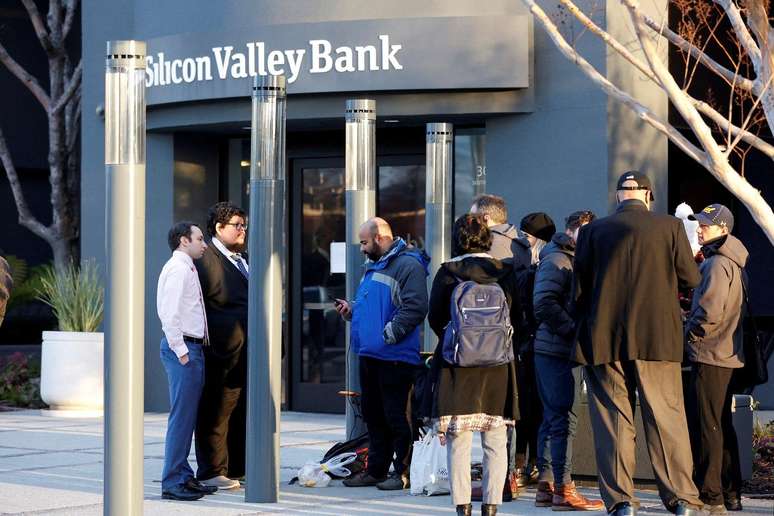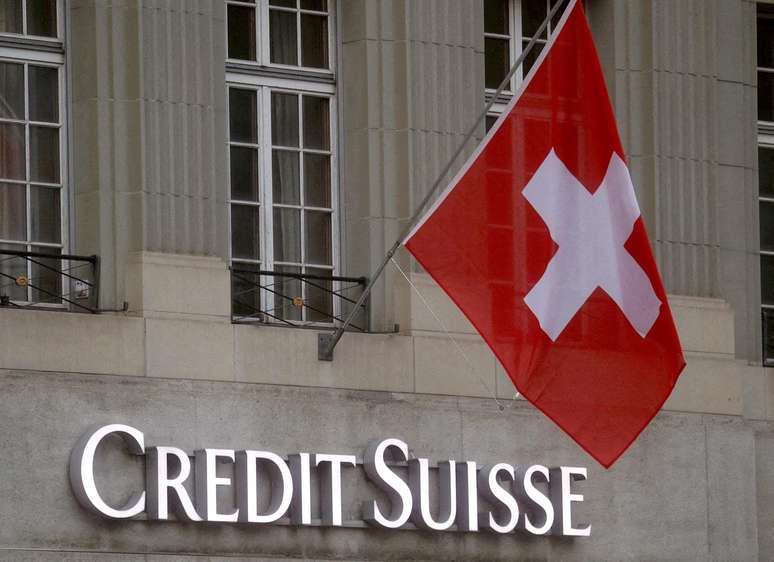Investors are concerned about how the struggling Swiss bank will deal with the fallout from US bank failures.
Shares of Credit Suisse plunged on Wednesday (15/3) to an all-time low amid already existing tensions among investors following the collapse of the US bank Silicon Valley Bank (SVB).
Shares of the Swiss bank lost 30% of their value, continuing the devaluation move that began on Tuesday when the financial institution said it identified “weaknesses” in its accounting controls.
Investors are concerned about how the troubled bank will deal with the consequences of US bank failures: in addition to the SVB, Signature Bank has been subjected to intervention by US financial authorities in recent days.
Concerns over the direction of the banking sector spilled over into equity markets, with all major indexes falling sharply.
Major indices in Europe fell more than 3%, while major US stock exchanges also fell, with the shares of large and small banks declining.
Concerns about the future of the banking sector and its impacts on the global economy also sent oil prices lower, with Brent finishing 4.85% lower and WTI down 5.22% on Wednesday.
In Brazil, Ibovespa closed 0.25% lower, with some relief after the Swiss central bank indicated it would provide Credit Suisse with liquidity “if needed”, amid rumors of a possible merger between the bank in difficulty and the UBS Group.
New crisis or other ‘isolated case’?
“The woes at Credit Suisse once again raise the question of whether this is the beginning of a global crisis or just another ‘idiosyncratic’ case,” wrote Andrew Kenningham of Capital Economics.
After admitting “weaknesses” in its financial statements, Credit Suisse insisted its financial position was not an issue, with the CEO saying the bank’s cash reserves “are still very, very strong”.
Even so, fears of problems at such a large international institution have put pressure on banking stocks around the world.
The troubles in the banking sector started in the US last week, with the collapse of SVB, the 16th largest bank in the country.
The bank – which specializes in lending to technology companies – intervened on Friday by US regulators in the biggest bankruptcy of a US financial institution since 2008. SVB’s UK division was sold for £1 by HSBC.
In the wake of the SVB’s collapse, Signature Bank of New York also failed, with US regulators guaranteeing all deposits in both cases.
But fears persist that other banks could face similar problems, and trading of shares in financial institutions has faced volatility this week.

‘It’s still too early to tell’
“It’s too early to know how widespread the damage is,” wrote Laurence Fink, chief executive officer of investment giant BlackRock, in an annual letter to investors.
“The regulatory response so far has been swift and decisive action has helped ward off contagion risks. But markets remain tense.”
Founded in 1856, Credit Suisse has faced a series of scandals in recent years, including allegations of money laundering and other problems.
The bank posted losses in 2021 and again in 2022 — its worst year since the 2008 financial crisis — and warned it didn’t expect to turn a profit until 2024.
The company’s stock had already taken a hit earlier this week, losing about two-thirds of its market value over the past year.
The shares’ decline came amid a wave of client withdrawals, which totaled 110 billion Swiss francs (R$625 billion) in the last quarter of 2022 alone.
The main shareholder refuses the new contribution
Credit Suisse’s disclosure on Tuesday of “weaknesses” in its financial controls renewed worries about the future of the financial institution.
The fear worsened when the bank’s main shareholder, the Saudi National Bank, announced it would not inject more resources into the Swiss institution.
Credit shares finished the day down 24% as other banks raced to reduce their exposure to the company.
Bloomberg reported that BNP Paribas had stopped accepting certain trades if Credit Suisse was the counterparty.
“This banking crisis has come from the United States. And now people are looking at how this can cause problems in Europe as well,” said Robert Halver, head of capital markets at Baader Bank in Germany.
“If a bank has had problems in the past and big investors say ‘we don’t want to invest in this bank anymore’, then the message is clear.”
Effect of rising interest rates
One of the problems that hit US bank SVB before its bankruptcy was that it was forced to sell US government bonds it owned to raise money.
But those stocks have lost value over the past year as the Federal Reserve (the central bank of the United States) raised interest rates to try to contain inflation.
Many other central banks have also raised interest rates. As rates rise, the value of banks’ bond portfolios decreases.
The declines mean that many banks could face significant potential losses. However, the change in value would normally not be a problem.
The problem arises when this impairment occurs amid other pressures — such as a significant customer withdrawal of funds — forcing the bank to sell its depreciated assets.
“The concern is that banks with large unrealized losses on their bond portfolios may not have sufficient reserves if there is a rapid withdrawal of deposits [pelos clientes]’ explains Susannah Streeter, director of markets at Hargreaves Lansdown.
“Although the larger institutions are not at risk, thanks to the large layer of capital they are backed by and the stable nature of their deposits, the jitters are palpable.”
-This text was published in https://www.bbc.com/english/articles/c87vlgdv1z3o
Source: Terra
Rose James is a Gossipify movie and series reviewer known for her in-depth analysis and unique perspective on the latest releases. With a background in film studies, she provides engaging and informative reviews, and keeps readers up to date with industry trends and emerging talents.






